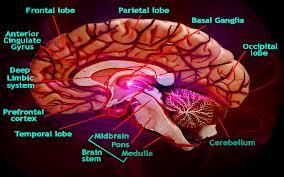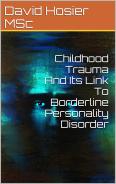Tags
The Effect of Childhood Trauma on Genes and Susceptibility to Depression.
Recent studies have shown that childhood trauma can actually change the structure of DNA in the person who has suffered it and consequently alter how these genes work (it has been known for some time that how genes express themselves is influenced by their interaction with the environment).
Animal studies support this finding: in rats it has been shown that QUALITY OF MATERNAL CARE HAS A LARGE EFFECT ON GENES RESPONSIBLE FOR THE STRESS RESPONSE IN OFFSPRING:
POOR MATERNAL CARE = ADVERSE EFFECT ON GENES OF OFFSPRING = HIGH SUSCEPTIBILITY TO STRESS IN OFFSPRING.
Indeed, there is a growing body of evidence that psychological abuse of children has BIOLOGICAL effects. Research suggests that the effects of abuse on the child’s DNA lowers their resistance to stress. This effect can persist throughout life and increases the suicide risk of the individual.
It is thought that trauma/abuse in early childhood (before the age of six) can have a particularly damaging effect on the DNA which controls the individual’s stress response.
(For those that are interested, environment affects DNA (and thus how it expresses itself) by punctuating it with what are technically known as EPIGENETIC MARKERS. It follows from this that the function of DNA is not permanently fixed from birth, but can be altered by its interaction with the environment).
The good news is, however, that the adverse effects on DNA caused by childhood trauma can be reversed in adult life by appropriate interventions. Key to these are the replacement of the traumatic environment with one which is supportive, loving, stable, safe and relatively stress-free. This is because just as traumatic environments can leave harmful epigenetic marks, good environments, over time, can reverse this effect.
CHILDHOOD TRAUMA, GENES AND DEPRESSION.
Just as trauma can affect genes, pre-existing genes can affect the impact trauma is likely to have on us; it is, to this extent, a two-way street then. It has already been stated in previous posts how exposure to trauma in childhood can lead to psychological problems such as clinical depression; studies now show that the risk becomes even greater if the sufferer of childhood trauma has a particular genetic make-up making him or her more vulnerable to the effects of stress:
So: children who are genetically predisposed to being particularly vulnerable to stress will typically be more adversely affected by the childhood trauma than those children who do not have the genetic vulnerability. THIS HELPS TO EXPLAIN WHY TWO CHILDREN WHO SUFFER SIMILAR TRAUMA MAY BE AFFECTED QUITE DIFFERENTLY FROM ONE ANOTHER.
Further study has shown that the children with the particular genetic variation are MORE SENSITIVE TO THE ENVIRONMENT AROUND THEM (they process emotional information differently) than children without the variation. The genes involved are responsible for the production of SEROTONIN (a chemical affecting mood, also known as a neurotransmitter) in the brain.
DISCORD BETWEEN PARENTS and NEGLECT (again, especially if the child is under six) have specifically been linked to the child developing HIGH EMOTIONAL SENSITIVITY and a greater susceptibility to stress. Again, if the child has the genetic variation making him or her particularly vulnerable, the adverse effects of the discord or neglect will be increase such vulnerability.
The research producing such findings as illustrated above is still in a relatively early stage and future research is likely to help clarify the complex interactions between our genes and how childhood trauma affects us.
Click here for a hypnotherapy download to help alleviate symptoms of depression.
I hope you have found this post of interest. My next post will examine some interesting statistics associated with childhood trauma.
My current posting schedule is at least one post every two days.
Hope to see you for my next post. David Hosier BSc Hons; MSc; PGDE(FAHE).




